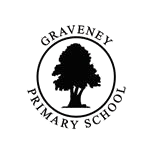Values and Ethos
Graveney Primary School Vision
Graveney Primary School provides a positive learning community delivered through partnership which believes in the uniqueness of each child. We aim to nurture the spiritual, cultural and emotional wellbeing of each individual within a caring and safe environment. We are committed to a process of continual improvement promoting aspiration, confidence and enjoyment.
Our aims for all our children at Graveney are to ensure they will:
- have high expectations of themselves and others at all times
- have respect for themselves and others in our diverse community as well as the environment
- have the confidence to work independently and collaboratively, and to embrace new challenges
- have an enthusiasm for learning which empowers them in achieving their best in all aspects of life and follow a safe and healthy lifestyle.
- be able to reflect, evaluate and build upon their experiences at Graveney, with happiness and pride.
Our curriculum is broad, balanced, flexible, exciting and relevant, inclusive and well planned. We ensure it enables pupils to make a significant contribution to their school, their community and the wider world.
Our British Values
The DfE have reinforced the need "to create and enforce a clear and rigorous expectation on all schools to promote the fundamental British values of democracy, the rule of law, individual liberty and mutual respect and tolerance of those with different faiths and beliefs."
At Graveney these values are reinforced regularly and in the following ways:
Democracy:
Democracy is a principle that we uphold in our school. Pupils have the opportunity to have their voices heard through class debates and discussions, our School Council and pupil questionnaires. Each class has a regular opportunity to share ideas and to contribute, with the class representative taking forward their views. Most recently, we have asked the children for their opinions on our school values, what they believe is important to all of us in school. Children will often be asked for their views through assemblies, in classes and through our School Council. They have recently had a large input into the review of our Behaviour Management Policy.
The Rule of Law:
The importance of Laws, whether they be those that govern the class, the school, or the country, are consistently reinforced throughout the school day, as well as when dealing with behaviour and through school assemblies. Every year each class sets their rules and codes of conduct in the first week of term as part of their PHSE lesson. As they are included in setting them, children understand why the rules matter and also recognise the significance of not adhering to these agreed rules. Pupils are taught the value and reasons behind laws, that they govern and protect us, the responsibilities that this involves and the consequences when laws are broken.
Individual Liberty:
Within school, pupils are actively encouraged to make choices, knowing that they are in a safe and supportive environment. Pupils are encouraged to know, understand and exercise their rights and personal freedoms and are advised on how to exercise these safely, for example through our E-Safety and PSHE lessons. We provide a wide range of extra-curricular clubs and our school curriculum allows for opportunities for pupils to be given the freedom to make choices.
Mutual Respect:
Part of our school ethos and behaviour policy has revolved around Core Values such as 'Respect', and pupils have been part of discussions and assemblies related to what this means and how it is shown. The school encourage positive behaviours and promote respect for others and this is reiterated through our Golden Rules and Eco-School Code, as well as our behaviour policy.
Tolerance of those of Different Faiths and Beliefs:
This is achieved through enhancing pupils understanding of their place in a culturally diverse society and by giving them opportunities to experience such diversity. Assemblies and discussions involving prejudices and prejudice-based bullying have been followed and supported by learning in RE and PSHE. Members of different faiths or religions are encouraged to share their knowledge to enhance learning within classes and the school. Different cultural experiences and diversity are celebrated and shared amongst the school community.
